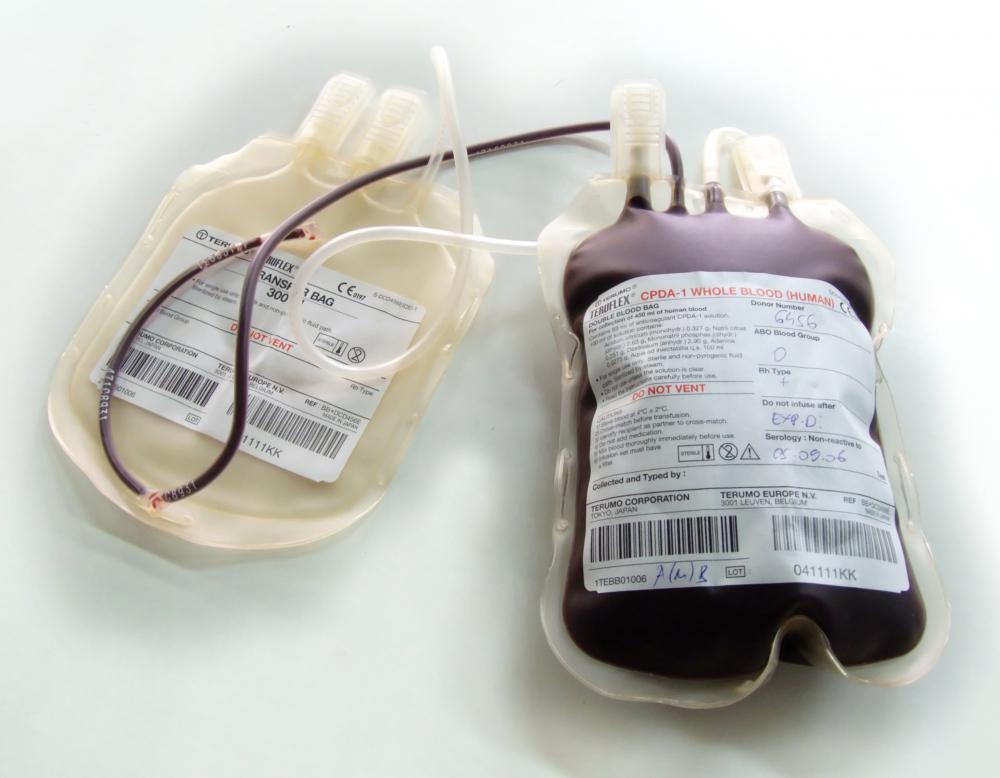At TheHealthBoard, we're committed to delivering accurate, trustworthy information. Our expert-authored content is rigorously fact-checked and sourced from credible authorities. Discover how we uphold the highest standards in providing you with reliable knowledge.
What Should I do After a Blood Transfusion?
After a blood transfusion, most people are perfectly fine and experience mild or no side effects. These patients will not need to do anything different or out of the ordinary. Rarely, some people can react badly to the transfused blood, meaning that the transfusion may need to be aborted and the patient may need other types of medical care. Careful screening before a transfusion is the best way to avoid a bad reaction.
There are some complications that may occur after a blood transfusion. A fever may develop, which could lead to a more serious reaction. Mild or serious allergic reactions may occur, ranging from hives to anaphylactic shock, in which a patient cannot breathe properly and may have heart problems. Other potential symptoms include anxiety, headache, dizziness, swelling, a feeling of pressure, muscle spasms, dark urine, and shortness of breath. All adverse symptoms during and after a transfusion should be taken seriously and looked into by medical professionals, but most often, the symptoms are minor and the transfusion can be completed later.

In the vast majority of cases, people can resume normal activities after having a blood transfusion, including eating and drinking normally and taking all current medications. Most people can go home shortly after the transfusion, unless an underlying condition requires a hospital stay. Patients should be aware of the signs of an adverse reaction and immediately seek medical attention if concerned.

It is important that the medical professional who is performing the transfusion does a pre-transfusion screening and carefully monitors the patient during the process. Reactions are more likely at the start of the transfusion, although they can occasionally occur later. Acute reactions can be life threatening if not treated immediately.
If the blood used in the transfusion was the recipient's own, it is less likely that the person will have a bad reaction to it. Some people, such as those who are having a planned surgery, have the option of donating blood ahead of time to be used during the surgery. If the blood came from another person, it does not seem to make a difference if it came from a stranger who volunteered to donate blood or from a relative or friend, as long as the blood is the correct type matching the patient's blood.
AS FEATURED ON:
AS FEATURED ON:















Discuss this Article
Post your comments